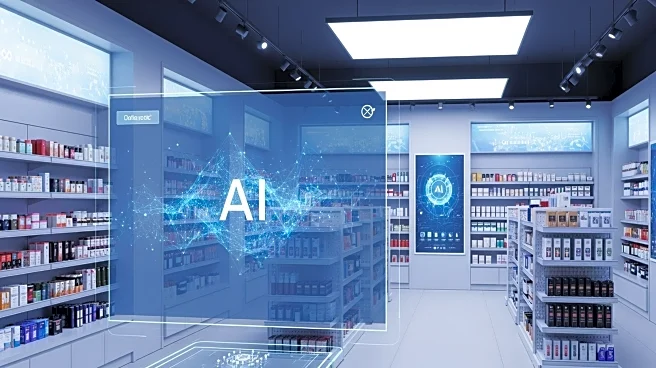What's Happening?
Target is integrating generative AI technology to improve its merchandising ideation and accelerate the creation of collections. The company aims to support its designers' creativity with AI-driven efficiency,
allowing them to make decisions while AI assists in the process. Additionally, Target is using AI to streamline its third-party seller review process for its marketplace, Target Plus, which was launched in 2019. This approach is intended to maintain a curated product selection by analyzing applications from sellers. Target's Chief Information and Product Officer, Prat Vemana, emphasized the importance of technology in enhancing speed, guest experience, and efficiency throughout the business.
Why It's Important?
The integration of AI in Target's operations signifies a shift towards technology-driven retail strategies, potentially setting a precedent for other companies in the industry. By leveraging AI, Target aims to enhance its merchandising authority and improve its product development speed, which could lead to increased sales and customer satisfaction. The use of AI in reviewing third-party sellers also ensures a high-quality marketplace, benefiting both consumers and sellers. This move reflects the growing trend of AI adoption in retail, highlighting its role in augmenting human creativity and decision-making processes.
What's Next?
Target plans to continue expanding its use of AI across various aspects of its business, including demand forecasting for the upcoming holiday season. The company is confident that AI will help position and place products effectively, reducing customer frustration. Target is also focusing on developing its workforce's knowledge of AI, deploying over 10,000 new AI licenses and providing training to staff. This ongoing investment in AI technology and employee skills suggests that Target will further integrate AI into its operations, potentially leading to more innovative retail solutions.
Beyond the Headlines
The ethical implications of AI in retail include concerns about data privacy and the potential for AI to replace human jobs. However, Target's approach emphasizes collaboration between AI and human creativity, suggesting a balanced integration that could serve as a model for other companies. The long-term impact of AI on retail may include shifts in consumer behavior and expectations, as well as changes in the competitive landscape as companies adopt similar technologies.









